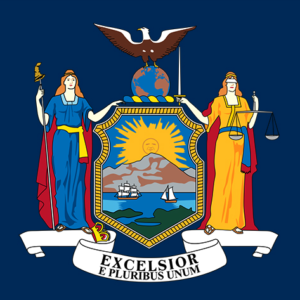If you receive a notice from the New York Office of Cannabis Management (OCM) that your application or True Party of Interest (TPI) disclosure is deficient, don’t panic. Although concerning, prompt and corrective action can put you back in the running for your application. Based on our experience helping dozens of other applicants, below are some key points to keep in mind while navigating this process:
Pay Attention to Deadlines
OCM typically gives a timeframe that ranges from five (5) to thirty (30) days to address deficiencies. The number and type of deficiencies you are notified about usually dictates the timeframe. Pay close attention. Missing these deadlines can result in your application being disqualified, which is why a timely response is essential.
Give Extra Attention to Your TPI Disclosures
It is critical your TPI disclosures are done correctly. Carefully review that all relevant information for both individual and entity-based TPIs are accurate and up-to-date. This may include, but is not limited to, ownership percentages, financial details, and any potential conflicts of interest that may arise.
Make Sure All Contractual Requirements Are Complete and Up-to-Date
Double check that your lease agreements and security agreements are complete and up to date. NOTE: These must be valid, legally binding agreements. For businesses with a physical location, make sure you have a valid Certificate of Occupancy. Letters of Intent (LOI) for real estate are not accepted and do not help your license application. Point of Sale (POS) vendor contracts and Labor Peace Agreements (LPA) will also be required.
Double Check Your NY Business Express and TPI Portal Submissions
These are two separate portals and make sure you go through both methodically. We often see applicants miss information like adding in their intended business hours because they don’t know them yet. While seemingly benign, you will get a deficiency notice for leaving information like that out. Verify your hours are correct and, if necessary, adjust and resubmit these details within the NY Business Express portal. The TPI portal houses all your TPI submissions and is separate from your NY Business Express Portal. Again, meticulously review all required information to ensure accuracy and resubmit. TPI portal submissions can be complicated and, if you haven’t done this before, some of the contracts required for Labor and PoS systems can be difficult to get in a timely manner. Budget extra time so you don’t feel pressured as deadlines approach.
Be Mindful of OCM Response Times
We recommend a courtesy email to the OCM confirming receipt of your supplemental documentation. It’s important you document as much as possible your proactive efforts to comply with the notice of deficiency. Please bear in mind, OCM typically takes about two business days to respond so if you have a question that you need answered we recommend you factor in that 48 hour window so you don’t miss critical deadlines.
Know When to Ask for Help
If you find yourself getting overwhelmed, instead of asking “what do I need,” ask instead “who do I need” to help me get through this process.
Working with a competent cannabis attorney who has deep experience with applying for cannabis licenses in New York can help ensure compliance submissions that meet required deadlines. Losing the opportunity to be a New York cannabis operator, or the ability to sell a lucrative license, is a heart break for anyone who has spent their hard earned time and money on a cannabis application. If you’re feeling stuck, don’t get frustrated – Get help. We’re here for you and would love to guide you through the process as we’ve done many times before.
Andy Sick, Esq. | Mr. Cannabis Law


